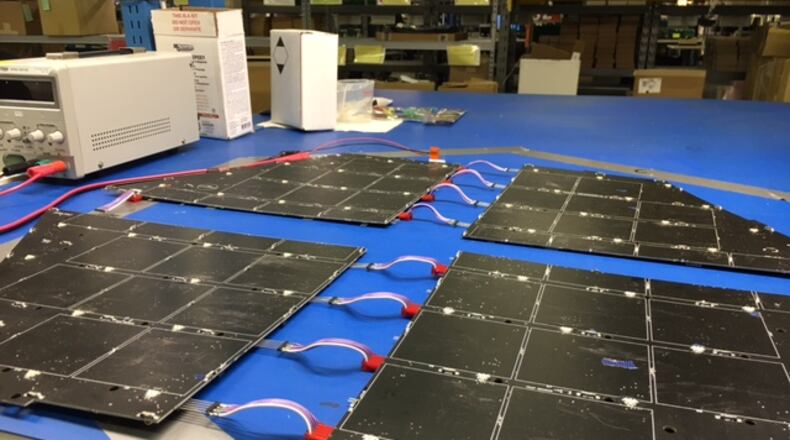RELATED: Fuyao increasing market share as auto industry slows
Brusaw said he is considering other locations. But in an interview Friday, he and his science director said locating in Dayton would put their company closer to its suppliers and customers — and would feel like returning “home.”
Brusaw said his PCBs come from Dayton, his solar cell components are made in Franklin and his T-Channel connectors come from Columbus.
RELATED: Indiegogo project wants to replace roads with solar panels
The modular pavement panels can warm up to melt snow and ice on contact and are embedded with LED lights that can be configured to create lanes and direction symbols. The panels are said to last 20 years.
The company is noteworthy on the Web for having launched in 2014 an Indiegogo fund-raising campaign that as of now has more than doubled the company’s early goal of $1 million.
Its You Tube video, "Solar Freakin' Roadways," has gone viral with more than 22 million views.
“Right now, we have a product, we know how to make it,” Brusaw said. But with current capacity, the company can make only three panels a day, he said.
The factory he has in mind would produce 1,000 panels a day with 50 to 100 workers initially.
“We need to roll out the mass production … We want to roll this out as fast as possible,” Brusaw said. Ideally, he would like to start this year.
“We’re talking about building a factory, starting shipping, starting the building of products,” said Jeff Harris, vice president of sales for E-Mek, which has 100 workers making circuit boards its Webster Street location.
Alyssa Delbridge, Solar Roadways director of science, said anchoring production in Ohio makes sense.
“We can save ourselves so much money and so much time if we have everything to make these panels in one location,” she said.
Brusaw said he is considering other locations, without saying where. But asked where he is leaning, the former Huber Heights resident said: “Here.”
“It would be kind of nice to be able to come back,” he said.
About the Author

